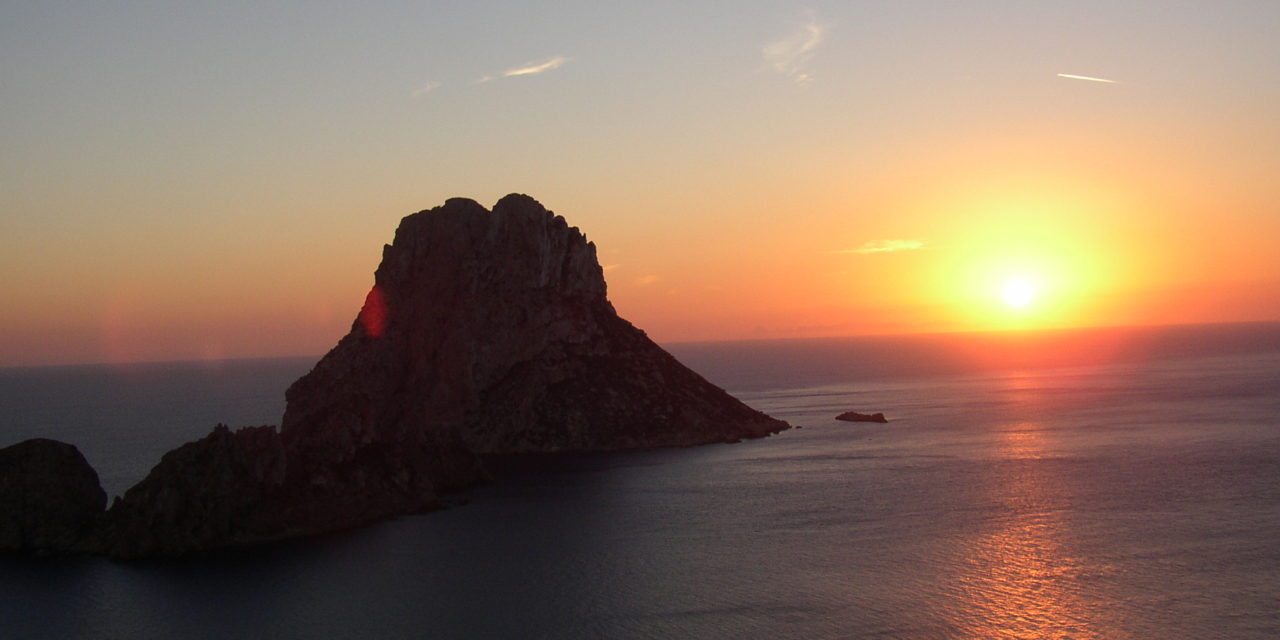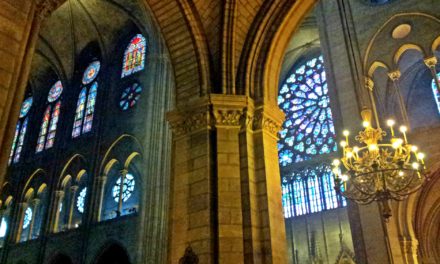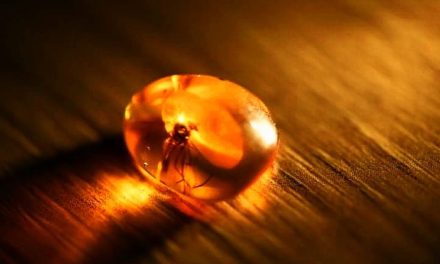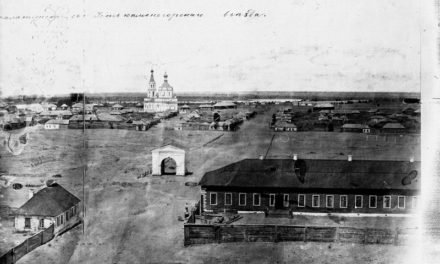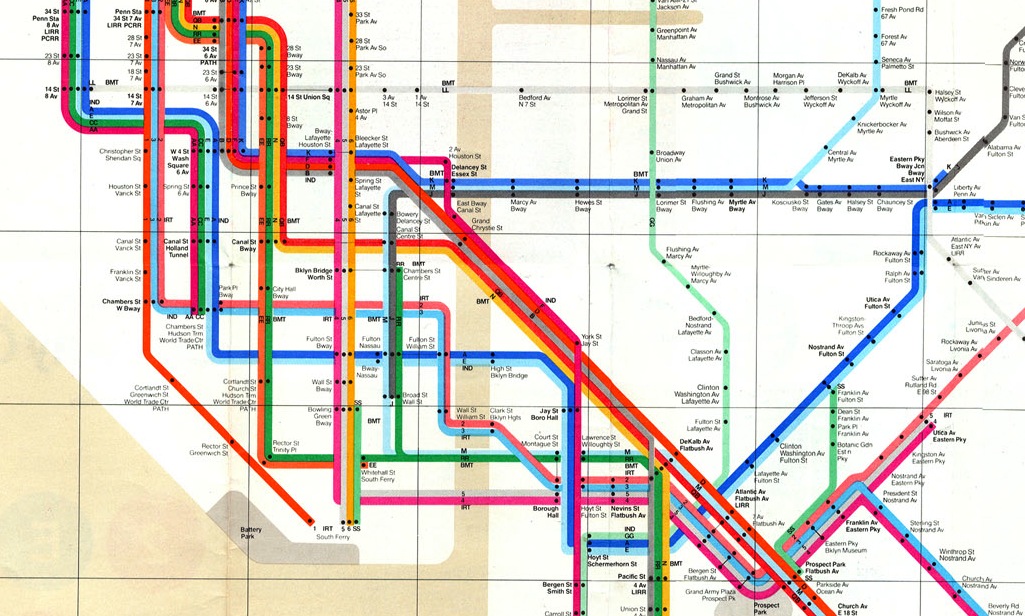Island of Oblivion
By Grace Loh Prasad
December 31, 1999. A couple hours after my plane touched down in Ibiza, I checked into a hotel room with a stranger. He’s tall, blond and blue-eyed, clad in black denim and leather, and shy but cute when he smiles. I entertained thoughts of a naughty vacation fling, a brief and reckless romance to add spice to my New Year celebration. But the reality was much less exciting: Kurt was just my roommate.
There were four of us traveling together—my friends Rachel and Jim, and their friend Kurt, and me—and we had two rooms reserved. Rachel and Jim are married and wanted their own room, so that left me and Kurt—whom I met only a few hours before at the Barcelona airport—in the other room. Rachel and Jim thought we might hit it off, and we did have a nice conversation on the plane, but that was never really the plan. Originally there were supposed to be five of us, but Jenny changed her mind at the last minute and went to the Virgin Islands, so Kurt and I were unintentionally “coupled” for the remainder of the trip.
We went upstairs to our tiny hotel rooms, each furnished with two threadbare twin beds barely an arm’s length apart. Kurt got under the covers and stripped down to his boxers to take a nap. I sensed that he was more embarrassed than I was about the room situation, so instead of getting into the other bed, I told him I was going downstairs to the hotel lounge to write in my journal.
* * * * *
When Rachel and Jim called me up in November and asked if I wanted to spend New Year’s Eve with them in Barcelona, I didn’t hesitate to say yes. I had no special desire to go to Spain, and I didn’t even know them that well. What I did know was that I wanted to get out of the country for the Millennium. It didn’t matter where I went, as long as I went somewhere.
A couple weeks before the trip, Jim emailed me and said the best New Year’s parties were going to be in Ibiza, a one-hour flight from Barcelona. Was I up for a little side trip? I said sure, why not? even though I didn’t know the first thing about Ibiza. As a Capricorn—practical and goal-oriented—I usually have a clear agenda when I travel. This time I just wanted to go with the flow.
I had originally planned to spend the Millennium on a cruise ship bound for Antarctica. My boyfriend, a well-known author, had accepted a speaking engagement aboard a research vessel transformed into a luxury liner for the benefit of well-heeled passengers seeking an unforgettable way to ring in the Year 2000. He said we’d have the unique privilege of celebrating the New Year in broad daylight, since the sun doesn’t set on the South Pole at that time of year.
Antarctica was to be the first of many grand adventures we planned to share. I had found in Simon another restless soul, a fellow writer and wanderer whose footprints covered every corner of the globe, except for the unexplored territory of his own heart. Our opposing personalities sparked a powerful attraction, but also a perpetual tension. When I told him I was apprehensive about sailing through the notoriously turbulent Drake Passage, he said not to worry. And he was right: our relationship ran aground in September, putting an end to those plans.
It was in the aftermath of that breakup that I accepted the invitation to go to Ibiza. I had a vague impression of it as a hedonistic beach paradise and Sixties hippie hangout; Jim told me that it was the music and nightlife capital of Europe. What we both knew was that it was a mythic place with a reputation for decadence.
Part of the autonomous community of the Balearics off the southern coast of Spain, Ibiza has been attracting visitors since 700 BC when it was settled by the Carthaginians. It was subsequently occupied by Romans, Vandals, Byzantines, and Moors before coming under Catalan rule in 1235 and the Spanish crown in 1715. Generations of invaders and pirates have made the people of Ibiza very tolerant, and their laid-back attitude extends to more recent waves of visitors too—the flower children of the Sixties, and the tourists and club kids of the Nineties.
An island of astounding natural beauty and no known hazards, Ibiza was believed to have regenerative powers. The Carthaginians saw it as a sort of Elysian Fields offering a gentle passage to the afterlife. They sent their dead to be buried there, as evidenced by the large necropolis at Puig des Molins, just outside of Dalt Vila. The Greeks called Ibiza and neighboring Formentera the Pitiusas, or islands of the pines; the abundant evergreens symbolize immortality. More recently it has been called the White Island, though I’m not sure if this is because of the white-washed houses that appear like clusters of sugar cubes, the ancient salt pans in the south of the island, or the spectacle of dancers covered in head-to-toe foam at one of the notorious parties at Amnesia. Perhaps we would find out.
* * * * *
Around 7:30, we rose from our naps and got dressed to go out. Kurt went to the other room and Rachel came to my room, so that we girls could get ready together. Rachel wore a silver minidress over skinny black pants, while I slipped into a strapless burgundy velvet dress, knee-high boots, and a fur-trimmed cardigan. We put glittery makeup on each other while the boys told us to hurry up. We agreed that dinner was the next priority, and that we’d head for Privilege, the disco, sometime after midnight. I was glad to get outside again; Kurt and I had spent the previous hour trying not to look at each other in that charmless, airless room. Rachel reminded us, “We won’t be sleeping much anyway.”
We walked into the center of town hoping our lack of a dinner reservation wouldn’t doom us to a lousy meal at one of the pizza-and-paella tourist traps on the main drag. Luckily, we found an elegant restaurant with an available table just off the Vara del Rey. The dining room was glowing with candlelight and each table was covered with a forest of stemmed glasses and bottles holding wine, champagne and water. In between the numerous appetizer courses, we ripped open our mylar bags of standard-issue party favors. We tried on plastic leis and cardboard party hats, unfurled coils of colorful streamers, and tested the noisemakers.
I’m not sure if it was the aphrodisiac effect of the lobster course, the multiple glasses of wine and champagne or simply the mood of anticipation, but we were all preoccupied with checking out the attractive people in the restaurant. Kurt was eyeing a platinum-haired woman in head-to-toe black vinyl, whom he said resembled “the chick from The Matrix.” Rachel and Jim were flirting with a sexy, fortyish woman sitting behind me at a long table full of raucous, friendly Germans. I tried to make eye contact with the headwaiter, a tall Nordic hunk with pale blue eyes and beautiful cheekbones.
Just before midnight, the servers distributed ribbon-tied cellophane packets of grapes, the traditional New Year’s Eve snack in Spain. There wasn’t a loud countdown like I was used to, but everyone raised their glasses on cue and we toasted and hugged and snapped photos in a frenzy of celebration. Loud pops erupted from the street and we all drifted outside with our champagne glasses to see the illicit fireworks.
It was 3:00 a.m. when our taxi twisted into the driveway of Privilege, billed as the largest nightclub in the world and located in the interior of the island on the road to the resort town of Sant Antoni. There was a huge crush of revelers lining up to get into the Manumission Time Machine party, and we had to push our way to the entrance where we surrendered our $60 tickets.
The first thing I noticed was the music, a hypnotic dance track which Jim, the music expert, called “expressive trance.” It had a moderate beat and no vocals, but every few beats a sultry voice whispered “Ibiza…” That bewitching voice lent the island a human shape: I imagined her as a beautiful girl with a bad reputation, a siren luring men to shipwreck, a goddess of love and destruction. On a lush, mysterious island, it would be easy to fall under her spell.
We walked through a tented passage that led to a cavernous main dance floor surrounded by several pavilions. There was a bar on either side (and many more I couldn’t see), a large stage and swimming pool in front, and pedestals all around where professional dancers in extremely skimpy outfits writhed to the music. The floor was strewn with red metallic confetti, streamers, party hats, and discarded mylar bags.
While we waited for Rachel near the coat check, Kurt circled around the bar. A few minutes later he handed me a glass of clear liquid and said, “Drink this.”
“What is it?” I asked.
“It’s water mixed with ecstasy,” he said.
I’d never been high on ecstasy—or any other drug for that matter. But Jim had convinced me earlier that evening that I should try it. ”It’ll make you feel good,” he promised. He looked upon this milestone with a mixture of disbelief and big brotherly pride.
“It might be bitter,” Kurt warned, but I actually liked the taste, which reminded me of tonic water. I drained the glass.
We walked to an area above the main bar where there was a balcony section with tables, chairs and a panoramic view of the dance floor and stage. The balcony floor was entirely covered in soft white feathers, and the area behind the balcony was filled with snow-covered trees and silver foil decorations in a sort of Winter Wonderland theme, probably in honor of Santa Maria de las Neus—Our Lady of the Snows—Ibiza’s patron saint. We stayed in this area for most of the night.
The crowd was pan-European, with a few Americans, Canadians, Aussies, and Japanese thrown in for good measure. Attire ranged from neat little black dresses and Italian suits to rock-star ensembles with leather, vinyl, spandex, sequins and lots of bare skin. There were even people in costume: Indian chiefs with full feather headdresses, skeletons and grim reapers, Santas, angels and devils. It was a Carnaval-like atmosphere, a great melting pot of sinners and saints.
Privilege is a fitting name for an extravagant disco in the middle of nowhere, whose primary clientele is middle-class kids on shore leave from the parental ship. The average age was about twenty-five; at thirty-something we were over the hill. The crowd was a mixture of professional club kids and a larger than usual contingent of cruise-and-shuttle folks, non-regulars like us who came along for the ride.
The name of the party was Manumission Time Machine, and it was certainly easy to lose track of the time. The electronic music, with its calculated beats, had a hypnotic, lulling effect, and dancing felt as natural as breathing. There was a lot to look at too: dancing girls on platforms wearing bikini tops, hot pants, stiletto heels, and cowboy hats. Trapeze artists swinging above the crowd in tandem with the music. A dozen guys juggling flaming torches. And most impressive of all, a man who walked a tightrope right over the dance floor with no safety net beneath him, then repeated the feat on a bicycle. Contributing to the dreamy, trancelike atmosphere was a computerized light show with lasers and animation. Short vignettes were shown in a continuous loop: a bird flying, two faces kissing, a dog running, a pair of clocks with the hands spinning backwards, out of control. At one point they lit up a gigantic sign suspended over the stage, spelling out “Privilege” in dazzling white sparklers.
Before that night, I had only a passing familiarity with electronic music; I had judged it an artless commodity to be avoided at all costs. But this music was different; it was simple and repetitive, yet it had a soothing and occasionally transcendent quality to it, with high soaring notes, rapid percussion and minimal vocals. Stripped of embellishment, the tracks blended together seamlessly, unified by a relentless tribal beat. I had associated techno with soulless machine-made melodies, so I was surprised that it seemed to arouse such a primitive, instinctual and pleasurable response—the urge to dance. This is one of the secrets of Ibiza, a particular flavor of euphoric dance music called the Balearic Beat that is exported throughout the world.
We drifted in and out of the balcony area. Jim was having a bad acid trip, so Rachel had to escort him to the restroom because he was hallucinating that people were throwing spears at him. Kurt followed some skirt to the downstairs bar, and disappeared for most of the evening. I stayed put in one area, so I could keep my eye on the Masked Man.
I was dancing and kicking up white feathers all around me when I fell in love with the Masked Man—a young Caucasian with short blond hair, a trim, athletic body, and the most amazing dance moves I had ever seen. He wore a white muscle shirt, black cargo pants, a white party hat that said “2000” on the brim, and a white and silver mask. He had beautiful arms, lean but muscular, that were highlighted with glitter gel. I never saw his face, but the way he danced did something to me. He was strong, yet graceful and fluid. He was perpetually in motion. His otherworldliness excited me; he seemed like a god or a demon with his magnetic allure. Dionysus, the god of wine and madness. Shiva, lord of the dance, the creator and destroyer. I felt attraction mixed with fear; I was tempted to move closer to him, to look in his eyes, hear his voice, touch his glittery biceps. I wanted to surrender, but something kept me away. So I just watched.
I whispered to Jim that I was in love with the Masked Man. He taunted me: “Grace has an ‘e’ crush!” I’d almost forgotten about the ecstasy. It was so gentle (I’d only taken half a capsule) that its influence on me was imperceptible, and I didn’t notice any change in consciousness the way I always notice the warming, dulling, loosening effect of alcohol. It was the most natural of highs: I felt energized but not hyper, relaxed but not numb. The most remarkable and pleasurable effect of the drug was that it silenced the unrelenting motor of my restless, conscious mind—the part of my brain that never stops thinking, worrying, reacting—but it left the lights on, so I was still fully aware and coherent. Like a soothing balm for an overstimulated mind, it turned off the accumulated noise of waking consciousness, replaced those thousands of tiny pinpricks with a feeling of intense calm.
If anything, I noticed what I didn’t feel: after hours of nonstop dancing in four-inch platform boots I didn’t feel pain, hunger, fatigue, or boredom. The insecurity was gone too: I didn’t worry about being a good dancer, or how my makeup looked, or whether anyone was paying attention to me. Probably 90% of the other revelers were similarly buoyed by e or other substances, and amazingly, no one seemed drunk or belligerent or out of control. We were one big happy crowd on our best behavior on what was feared to be the most reckless, dangerous night of the year.
By the time it occurred to me to ask what time it was, it was 7:00 a.m. A while later Rachel tapped me on the shoulder and pointed behind me to a large wraparound window: it was getting light outside. We walked toward the back and ascended a narrow stairway to the roof terrace where the air was cold but refreshing. There was a steel dome above us, and wrapped around in giant letters was the neon sign we’d seen from the street: Privilege.
I felt like we were emerging from a dark Underworld, the domain of Hypnos, and going out to greet Eos, goddess of the dawn. We could see Ibiza town near the harbor, its walled fortress and cathedral of Dalt Vila rising on a hill in the distance. The surrounding countryside was green and peaceful, except for the surreal, pulsating disco which seemed like a space ship that had crash landed in the middle of this pastoral scene. The hills were covered with olive and fig trees and dotted with white houses strung with clotheslines. Thin plumes of smoke rose from chimneys. Everything was outlined in pink as the sun slowly approached the horizon. Like Baudelaire’s idealized landscape, it was luxe, calme et volupté, a refuge from the burdens of the modern world, and the sorrows of the last thousand years.
My eyes adjusted to the light. I felt like I was waking from a long dream that was both fantastic and scary, unsure of where I had been but convinced that I had crossed a border during the night. Sleeping is dreaming, dreaming is forgetting, and forgetting is healing. Arriving safely on the other side, I start again.
The four of us took some photos on the roof deck, then stared out at the horizon to watch the sun come over the mountain. Soon it would be 9:00 a.m.—midnight in California, as the New Year moved westward over the globe. I breathed deeply and felt myself smile as the first sun of the Year 2000 warmed my face.

[Header image by Markus Heller, Creative Commons.]

